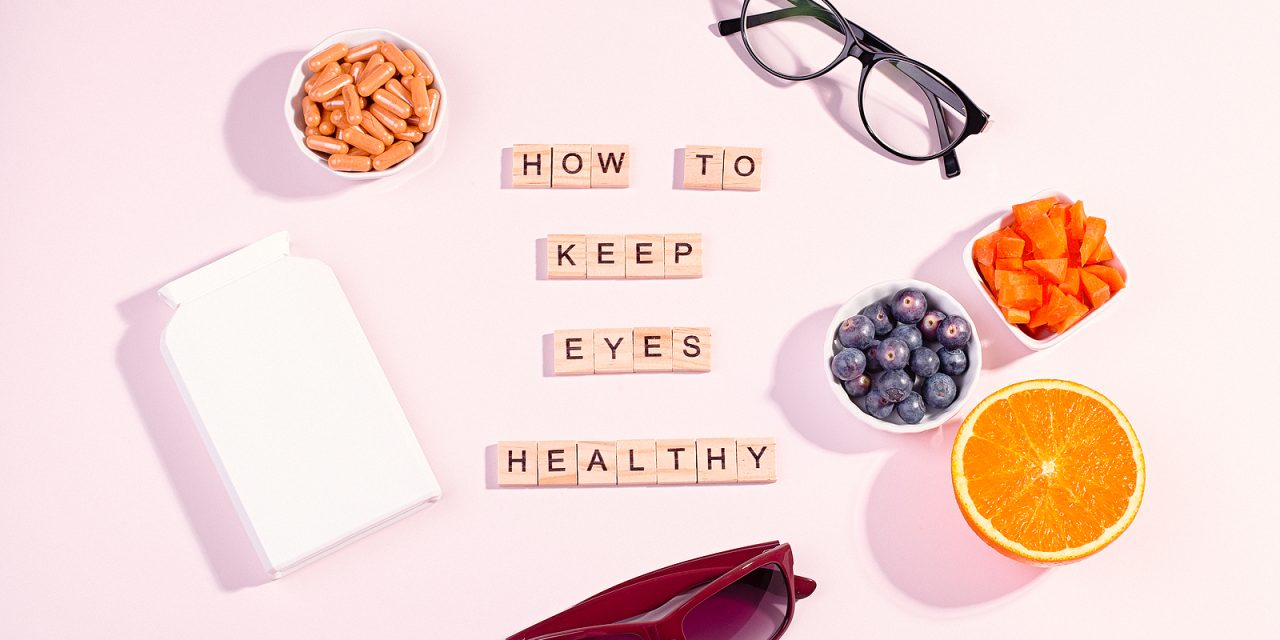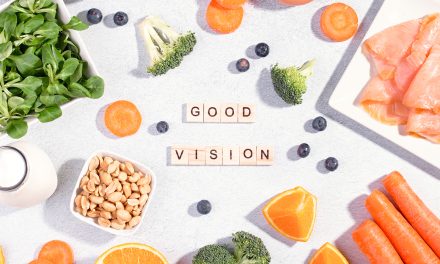Maintaining eye health is essential for clear vision, but with so many factors contributing to eye health, it’s vital to understand how nutritional supplements may play a role. A healthy diet is foundational, but specific nutrients have been identified as beneficial for maintaining and possibly improving eyesight. Research suggests that certain vitamins, minerals, and fatty acids can help protect eyes from age-related issues, strain, and environmental damage.

Nutritional supplements aimed at enhancing eye health often contain a mix of vitamins, including A, C, and E, which have been linked to reduced risk of chronic eye diseases. Minerals such as zinc are important for the proper functioning of retina, while omega-3 fatty acids support visual development and retinal function. Additionally, carotenoids like lutein and zeaxanthin, which are found in the retina, can help shield the eyes from harmful light and oxidative stress. It is, however, crucial to consider the safety and efficacy of these supplements and seek professional advice when incorporating them into one’s diet.
Key Takeaways
- Specific vitamins, minerals, and fatty acids contribute to maintaining and enhancing eye health.
- Carotenoids play a vital role in protecting the eyes from harmful light and oxidative stress.
- Professional advice is crucial when adding supplements to the diet for optimal eye health.
Understanding Eye Health
Maintaining optimal eye health is essential for preserving vision and preventing diseases. Various parts of the eye, such as the retina, are crucial for vision as they contain photoreceptor cells that convert light into electrical signals. The cornea is the eye’s outermost layer and functions as a protective window that also helps focus incoming light.
Macular degeneration and cataracts are common age-related conditions. The former involves the deterioration of the retina’s central part, impacting detailed vision. Cataracts, on the other hand, cause clouding of the lens, leading to a decrease in vision clarity.
Another serious condition is diabetic retinopathy, where high blood sugar levels cause damage to the retina’s blood vessels. Glaucoma is characterized by increased pressure within the eye that can damage the optic nerve, often resulting in vision loss.
- Retina: Sensitive to light; necessary for visual processing
- Cornea: Focuses light; protective covering
- Macular Degeneration: Affects sharp, central vision
- Cataracts: Clouding of the lens, leading to blurred vision
- Diabetic Retinopathy: Damage due to diabetes, affecting blood vessels in the retina
- Glaucoma: Pressure build-up inside the eye, damaging the optic nerve
Promoting eye health involves regular check-ups, proper nutrition, and potentially the use of supplements that support the various elements of visual function. Protecting these critical aspects of the eyes helps preserve vision and reduce the risk of eye-related diseases.
Role of Nutrition in Eye Health
Proper nutrition plays a crucial role in maintaining eye health and potentially improving eyesight. Specific nutrients are essential for protecting the eyes against age-related issues and supporting overall visual function.
Key Nutrients for Eyesight
Several vitamins and antioxidants are known to be beneficial for eyesight:
- Vitamin A is essential for good vision, especially in low light conditions, and for maintaining healthy eyes.
- Vitamin C and Vitamin E work as antioxidants to protect the eyes from oxidative stress.
- The minerals Zinc helps in transporting Vitamin A from the liver to the retina, to produce melanin which is a protective pigment in the eyes.
- Lutein and Zeaxanthin are carotenoids found in the retina; they act as blue light filters to protect the eyes from damaging light.
- Omega-3 fatty acids, especially DHA, play a structural role in cell membranes and support retinal function.
Dietary Sources of Eye-Friendly Nutrients
Incorporating a variety of foods into one’s diet can help in acquiring these eye-friendly nutrients:
| Nutrient | Dietary Sources |
|---|---|
| Vitamin A | Carrots, sweet potatoes, spinach |
| Vitamin C | Citrus fruits, red peppers, kale |
| Vitamin E | Almonds, sunflower seeds, avocados |
| Zinc | Oysters, beef, pumpkin seeds |
| Lutein & Zeaxanthin | Kale, spinach, corn, eggs, peas |
| Omega-3 fatty acids | Fish like salmon, flaxseeds, chia seeds |
These nutrients are found in supplements and naturally in a balanced diet that includes fruits, vegetables, nuts, seeds, and oily fish.
Vitamins and Their Benefits
The right vitamins can be crucial for maintaining healthy eyesight. Specific vitamins contribute to eye health by defending against oxidative stress and maintaining essential functions within the eye.
Vitamin A and Beta-Carotene
Vitamin A is vital for maintaining good vision, particularly in low light conditions, and is also imperative for eye health. The body can convert beta-carotene, a precursor to vitamin A found in foods like carrots and sweet potatoes, into vitamin A. A deficiency in vitamin A can lead to conditions like xerophthalmia, a progressive eye disease.
Vitamin B Complex
The B vitamins, including vitamin B1 (thiamine) and riboflavin, play an important role in maintaining eye health. Thiamine is known to contribute to proper nervous system function, which is crucial for transmitting visual signals from the eye to the brain, while riboflavin is known to help reduce oxidative stress in the eyes.
Vitamin C
An antioxidant that the body doesn’t produce naturally, vitamin C must be obtained from the diet. It’s found in high concentrations in the eye’s fluid, known as the aqueous humor, and is believed to promote healthy blood vessels in the eyes.
Vitamin E
A powerful antioxidant, vitamin E helps protect the eyes from damage caused by free radicals. These free radicals can harm healthy tissue, and adequate levels of vitamin E can help prevent age-related macular degeneration and cataracts.
Minerals and Eye Health
Minerals play an essential role in maintaining eye health. Specific minerals such as zinc and copper are integral to various eye functions, from maintaining the retina’s health to supporting the efficient transmission of nerve signals.
Zinc
Zinc is a mineral crucial for strong vision as it is found in high concentrations in the eye, especially in the retina and choroid, the vascular tissue layer lying under the retina. This mineral helps form melanin, which protects the eyes from UV light. Moreover, supplementation with zinc has been linked to improved treatment outcomes in conditions like age-related macular degeneration (AMD).
- Recommended Daily Amount: The recommended daily allowance (RDA) is 11 mg for men and 8 mg for women.
Copper
Copper, while needed in smaller amounts, supports nervous tissue health, including the nerves that serve the eyes. It works synergistically with zinc; supplemental zinc can interfere with copper absorption, thus a balance of the two is necessary. One must maintain the delicate balance between zinc and copper to prevent potential deficiencies.
- Essential for: Formation of connective tissue and supporting eye nerve health.
- Interaction with Zinc: Taking high doses of zinc can lead to copper deficiency, so it’s essential to have a balanced intake.
Selenium
Selenium is a mineral with antioxidant properties, helping to protect the eyes from oxidative stress which can lead to chronic conditions such as cataracts and macular degeneration. It supports the body’s production of glutathione peroxidase, an enzyme that acts as a natural antioxidant within the eye.
- Role in Eye Health: Protects against oxidative damage and supports overall eye health.
Carotenoids and Eye Health
Carotenoids are crucial for maintaining eye health, acting as antioxidants, and filtering harmful blue light. These compounds are mainly concentrated in the eye’s macula, critical for vision.
Lutein and Zeaxanthin
Lutein and zeaxanthin are carotenoids found in high concentrations within the eye’s macula. These substances filter blue light and help protect against macular degeneration. The human body does not produce these compounds naturally; they must be obtained through diet. Leafy green vegetables like spinach and kale are excellent sources of lutein and zeaxanthin. Corn is another food that contains these carotenoids, though in smaller amounts. According to studies referenced by All About Vision, supplementation with lutein and zeaxanthin can support macular health.
Beta-Carotene
Beta-carotene is a precursor to vitamin A and another carotenoid beneficial to eye health. It plays a vital role in the function of the retina and low-light visibility. While beta-carotene is not directly concentrated in the eye, it supports overall eye health by being converted to vitamin A. Foods such as carrots, sweet potatoes, and spinach are abundant in beta-carotene. As explained by the Mayo Clinic Press, carotenoid nutrients like beta-carotene become significantly reduced when the macula starts to deteriorate, indicating the importance of these nutrients in maintaining macular health.
The Impact of Omega-3 Fatty Acids
Omega-3 fatty acids are crucial for maintaining eye health, particularly through the presence of DHA and EPA, which are found in high concentrations within the retina.
DHA and EPA
Docosahexaenoic acid (DHA) and eicosapentaenoic acid (EPA) are long-chain omega-3 fatty acids that are vital to retinal health. They are found in the cell membranes of the eye and are believed to provide protective benefits. DHA is mainly concentrated in the retina, and adequate intake is associated with a reduced risk of macular degeneration and other retinal diseases. It’s suggested that these fatty acids may improve vision quality and lower the chance of eye diseases later in life.
Fish such as salmon and tuna are excellent sources of both DHA and EPA. Regular consumption of these fish can help maintain proper eye function and support overall eye health. For those who prefer plant-based sources, flaxseeds, chia seeds, and certain nuts and seeds can provide alpha-linolenic acid (ALA), which the body can partially convert to DHA and EPA. However, the conversion rate is relatively low.
Incorporating these foods into one’s diet or considering high-quality supplements may support eye health, particularly for individuals lacking sufficient omega-3s from dietary sources.
Addressing Age-Related Eye Conditions
Certain supplements have shown promise in slowing the progression of age-related eye conditions such as age-related macular degeneration (AMD) and cataracts, which are significant causes of vision impairment and blindness.
Age-Related Macular Degeneration (AMD)
Age-related macular degeneration is a condition that can lead to significant vision loss in individuals over the age of 50. AMD is categorized into two types: dry and wet. The Age-Related Eye Disease Studies (AREDS and AREDS2) have provided compelling evidence for the use of specific dietary supplements. They suggest that a combination of antioxidant vitamins and minerals can slow down the progression of intermediate and advanced AMD.
The recommended formula from these studies—AREDS2—includes:
- Vitamin C
- Vitamin E
- Lutein and Zeaxanthin
- Zinc
- Copper
Research indicates that people with intermediate AMD or those with advanced AMD in one eye may benefit from these supplements. However, they are not a cure for AMD, nor do they restore vision that has already been lost.
Cataracts
Cataracts, a clouding of the eye’s lens, are another common condition associated with aging. While the development of cataracts can be influenced by genetic factors, environmental factors, and behaviors such as smoking, nutritional interventions might also play a role in managing their progression.
For individuals with or at risk of cataracts, studies have not proven that supplements can prevent cataracts. However, maintaining a diet rich in antioxidants like vitamins C and E may help to delay the onset. Additionally, good glycemic control in people with diabetes is essential as fluctuations in blood sugar levels can exacerbate the growth of cataracts, leading to an increased risk of blindness.
Regular eye examinations are crucial for early detection and management of both AMD and cataracts, complementing any nutritional approach.
Supplement Facts and Safety
When selecting supplements to support eye health, it is crucial to understand the components they contain and their research-backed benefits. Safety and efficacy should be the focus of your choices.
Choosing the Right Supplements
When considering supplements to support vision, it’s essential to look for those that include specific vitamins for eye health. Multivitamins may provide a broad range of nutrients, but targeted vitamin and mineral supplements are often recommended for eye health. Common ingredients to look for include zinc supplements and omega-3 fatty acids, which have been researched for their roles in eye health. It is essential to check for high-quality ingredients and to confirm that the dosages are safe and effective.
- Key Ingredients: Look for formulations containing vitamin C, vitamin E, zinc, and omega-3s.
- Quality Over Quantity: Choose high-quality brands that adhere to manufacturing standards.
- Dosage: Ensure the dosage of each vitamin and mineral falls within safe, recommended levels.
Understanding AREDS and AREDS2
The terms AREDS and AREDS2 refer to extensive studies that evaluated the effects of specific vitamin and mineral combinations on age-related macular degeneration (AMD). Supplements formulated based on these studies often contain vitamin C, vitamin E, zinc, and copper, with the addition of lutein and zeaxanthin in AREDS2. Following the AREDS2 study, many supplements replaced beta-carotene with lutein and zeaxanthin to improve safety profiles.
- AREDS: The original study suggested a formula consisting of vitamin C, E, beta-carotene, zinc, and copper.
- AREDS2: Follow-up study that revised the formula by adding lutein and zeaxanthin and removing beta-carotene.
Dietary Adjustments for Optimal Eye Health
Maintaining optimal eye health often begins with the foods one consumes. A balanced diet rich in particular nutrients can support and even improve eye function. For individuals seeking to enhance their eyesight through nutrition, including specific fruits and vegetables is essential.
Leafy greens such as spinach and kale are packed with lutein and zeaxanthin, antioxidants that are beneficial for the retina and overall eye health. These nutrients help protect the eyes from harmful light waves and are found in peas, egg yolk, and broccoli. For detailed information on lutein and zeaxanthin-rich foods, visit this Mayo Clinic Press article.
Orange and yellow vegetables, notably carrots, sweet potatoes, and pumpkin, provide significant amounts of beta-carotene, which the body converts to vitamin A. Adequate vitamin A intake is crucial for the maintenance of good vision.
Bell peppers, high in vitamin C, support the blood vessels in the eyes and can reduce the risk of cataracts. It’s also beneficial to include sources of omega-3 fatty acids, like salmon, for their potential role in reducing the risk of macular degeneration.
| Nutrient | Food Examples |
|---|---|
| Beta-carotene | Carrots, Sweet Potatoes, Pumpkin |
| Lutein & Zeaxanthin | Spinach, Kale, Peas, Egg Yolk |
| Vitamin C | Bell Peppers, Broccoli |
In addition to these foods, one should ensure that their diet is diverse and rich in various other nutrients to support eye health comprehensively. For further reading on the necessary nutrients for eye health, refer to the Forbes Health report. Remember, diet plays a pivotal role but doesn’t replace medical advice or necessary supplementation prescribed by healthcare professionals.
Professional Advice and Regular Check-Ups
When considering supplements to improve eyesight, it is paramount that individuals seek professional advice from an ophthalmologist. These eye specialists have the expertise to assess visual health and can recommend appropriate supplements tailored to one’s specific needs. An ophthalmologist can determine which nutrients may benefit a person’s eye health based on medical history and current eye problems.
Regular check-ups are instrumental in monitoring the health of the eyes and detecting any issues early on. During these visits, the ophthalmologist can track the progression of one’s eye health and adjust supplement recommendations as needed.
- Nutritional Guidance:
- An ophthalmologist might suggest supplements with vitamins C and E, zinc, lutein, zeaxanthin, and omega-3 fatty acids.
- Discussing potential interactions with current medications with the healthcare provider is essential.
- Monitoring Regime:
- Regular comprehensive eye exams, ideally on an annual basis or as recommended by the healthcare professional.
- Evaluations of how supplements are affecting eye health over time.
- Personalized Care:
- Each patient receives care specific to their condition, age, genetic factors, and overall health.
By adhering to the guidance of eye care professionals and maintaining a schedule of regular check-ups, individuals can more effectively support their eye health and potentially enhance their eyesight with the proper supplementation. An ophthalmologist serves as a medical professional and a trusted guide in the journey toward maintaining and improving visual wellness.
Understanding and Managing Contributing Factors
When considering the health of one’s eyesight, it’s crucial to be aware of various contributing factors that can affect vision. Free radicals, highly reactive molecules, have the potential to cause oxidative stress, which can harm eye health. To combat these, antioxidants found in some supplements may provide a protective effect.
Diabetes is a systemic condition that can lead to diabetic retinopathy, a significant cause of blindness. Managing blood sugar through diet, exercise, and medication is essential. In addition, supplements that support blood sugar regulation can be beneficial.
Dry eye disease is characterized by insufficient lubrication on the eye’s surface. Omega-3 fatty acids, typically found in fish oil supplements, can help manage this condition by supporting tear production.
Night blindness and difficulty seeing in low light may arise due to a deficiency in vitamin A. Ensuring adequate intake of vitamin A, either through diet or supplementation, can help maintain normal vision.
Individuals should consider these factors:
- Antioxidant-rich supplements to combat oxidative stress
- Blood sugar management for diabetes-related eye conditions
- Omega-3 supplements for dry eye symptoms
- Adequate vitamin A for preventing night blindness
Ultimately, a balanced approach that addresses these variables may contribute to better eye health. Individuals should consult healthcare professionals before starting any new supplement regimen.
Frequently Asked Questions
The questions highlighted below address common concerns about dietary sources recommended vitamins, and supplements beneficial for eye health, aiming to guide individuals toward maintaining and improving their eyesight.
What dietary sources are rich in Vitamin A to support healthy vision?
Dietary sources that are rich in Vitamin A include carrots, sweet potatoes, spinach, and kale. These foods support healthy vision and may reduce the risk of age-related eye conditions.
What are the recommended eye vitamins for adults to maintain good eyesight?
For adults, the best vitamin supplements for eyesight include vitamins A, C, E, zinc, lutein, and zeaxanthin. These nutrients contribute to maintaining eye health and visual acuity.
Which supplements are known to be effective for managing macular degeneration?
Supplements containing lutein, zeaxanthin, and omega-3 fatty acids are known to be effective in managing macular degeneration. They may help slow its progression and support overall eye health.
What are the best eye health supplements available in tablet form?
The Eyesight Max Vision Supplement is an example of a tablet-form supplement that claims to improve eye health naturally. When choosing accessories, looking for quality assurance and consulting with a healthcare provider is essential.
Can you list some foods that enhance eye health due to their vitamin content?
Foods that enhance eye health due to their vitamin content include fatty fish rich in omega-3s, berries high in antioxidants, and citrus fruits whole of vitamin C, among others.
What nutrients are commonly deficient in individuals experiencing blurry vision?
Individuals experiencing blurry vision may be deficient in vitamin D, B12, and omega-3 fatty acids. These deficiencies can contribute to eye health problems and symptoms like blurred vision.

















